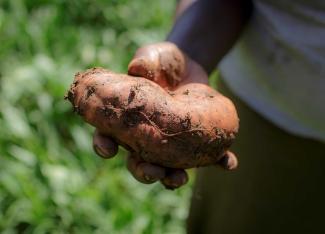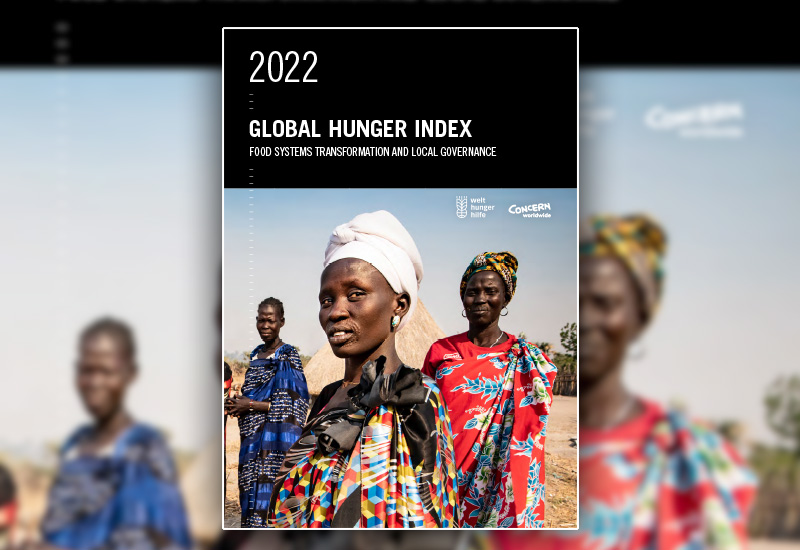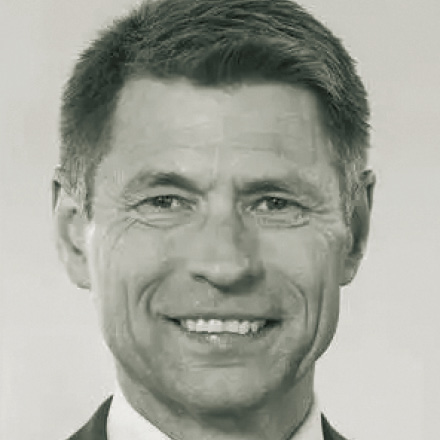Our view
Why SDG2 – ending hunger – deserves very much attention

During Covid-19 lockdowns, food security deteriorated in many places. Russia’s attack on Ukraine has compounded problems. Commodities trade on stock exchange is supposed to ease price volatility, but unexpected shocks can – and this time did – lead to spikes. The number of people who need humanitarian assistance is growing. Even in high-income nations, dependence on food banks is increasing.
So far, the international community has been producing enough food for everyone – but failed to distribute it appropriately. Too many poor people simply cannot afford to buy what they need, and inflation is causing additional pain. Moreover, supplies tend to be too short in strife-torn areas, such as Yemen, for example.
In the longer run, however, the world’s farms may no longer produce enough even in theory. The reasons would be worsening environmental problems and the still growing world population. SDG2 thus deserves very much attention. The failing current food system must be reconsidered.
Though it may seem counterintuitive, policymakers have to focus on smallholder peasants in the remote rural areas of disadvantaged world regions. Global food security hinges on them. The first reason is they are among the world’s poorest and most food-insecure people. Most get no government support in terms of subsidies, infrastructure or social protection. For the world to achieve zero hunger, their lot must improve.
The second reason is less commonly understood. It is that, in spite of their deprivations, these rural communities are custodians of indispensable resources. In the course of many centuries, their practices have shaped landscapes with resilient eco-systems, the collapse of which would trigger further environmental harm.
Local farmers have bred plant and animal varieties that are adapted to the local environment. Humankind must not lose these landraces. Commercial breeders use their plant-genetic resources to invigorate and improve high-yielding varieties. As biological evolution never stops, a cultivar must be cultivated to stay viable. It is not safe to rely only on gen and seed banks.
Industrial-scale agriculture is crowding out smallholders. It is destructively dominating land use (see Chimezie Anajama on www.dandc.eu).
It produces cheaper, but less diverse goods. The low-price processed goods that are popular in cities, however, typically contain too much fat, sugar and salt, but too few vitamins and proteins. By contrast, traditional farming communities typically have rather diverse and healthy diets. They eat a broad variety of vegetables, fruit, cereals, meat and fish. Due to population growth, their traditional practices often no longer suffice to feed all people in a village. Their productivity must be boosted in eco-friendly ways, and scientific researchers must help (see Hildegard Lingnau on www.dandc.eu).
Large-scale farming, on the other hand, must become eco-friendly. That does not mean to suddenly stop using fertilisers and pesticides, as was recently tried in Sri Lanka when the Rajapaksa government ran out of foreign exchange to import those goods. That experiment lead to a harmful drop in productivity, but not to the needed ecological transformation.
Experts have been debating these things for many years. The current crisis is an opportunity to change course. If the international community musters the political will, SDG2 is achievable. The alternative is to let problems spin out of control.
Hans Dembowski is the editor in chief of D+C Development and Cooperation / E+Z Entwicklung und Zusammenarbeit.
euz.editor@dandc.eu














